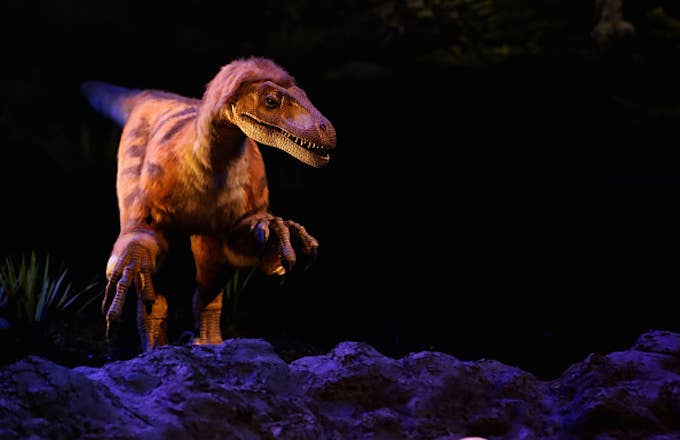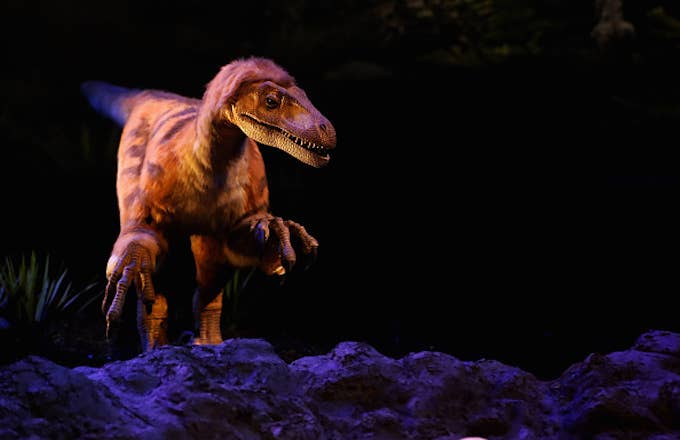
Scientists have made a new discovery which shows just how unbelievably unlucky dinosaurs were when an asteroid hit the earth millions of years ago.
In an attempt to figure out how a relatively small asteroid could cause so much damage, researchers recovered rock cores from 66 million years ago under the Gulf of Mexico after drilling a mile into an impact crater off the Yucatan peninsula last year. Scientists speculate that a 15 kilometer wide asteroid struck the earth at the absolutely worst possible spot. See...incredibly unlucky! Since the area of impact is covered by a shallow sea, "colossal volumes" of sulphate particles got into the atmosphere, causing its own set of problems as you can see in the breakdown below.
"This is where we get to the great irony of the story—because in the end it wasn’t the size of the asteroid, the scale of blast, or even its global reach that made dinosaurs extinct—it was where the impact happened," said Ben Garrod, teaching fellow at Anglia Ruskin University in Cambridge, toldBBC News. It is believed that if the asteroid struck moments earlier or later, dinosaurs could have possibly Neo'd their way around extinction. If the asteroid hit either the Atlantic or Pacific Ocean, there would be some atmospheric problems, but nothing on the scale of what actually happened.
Next time you catch yourself saying, "I have the worst luck," think of the dinosaurs.

